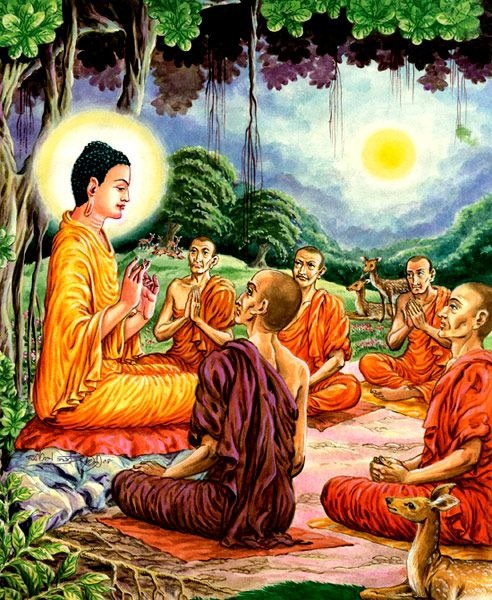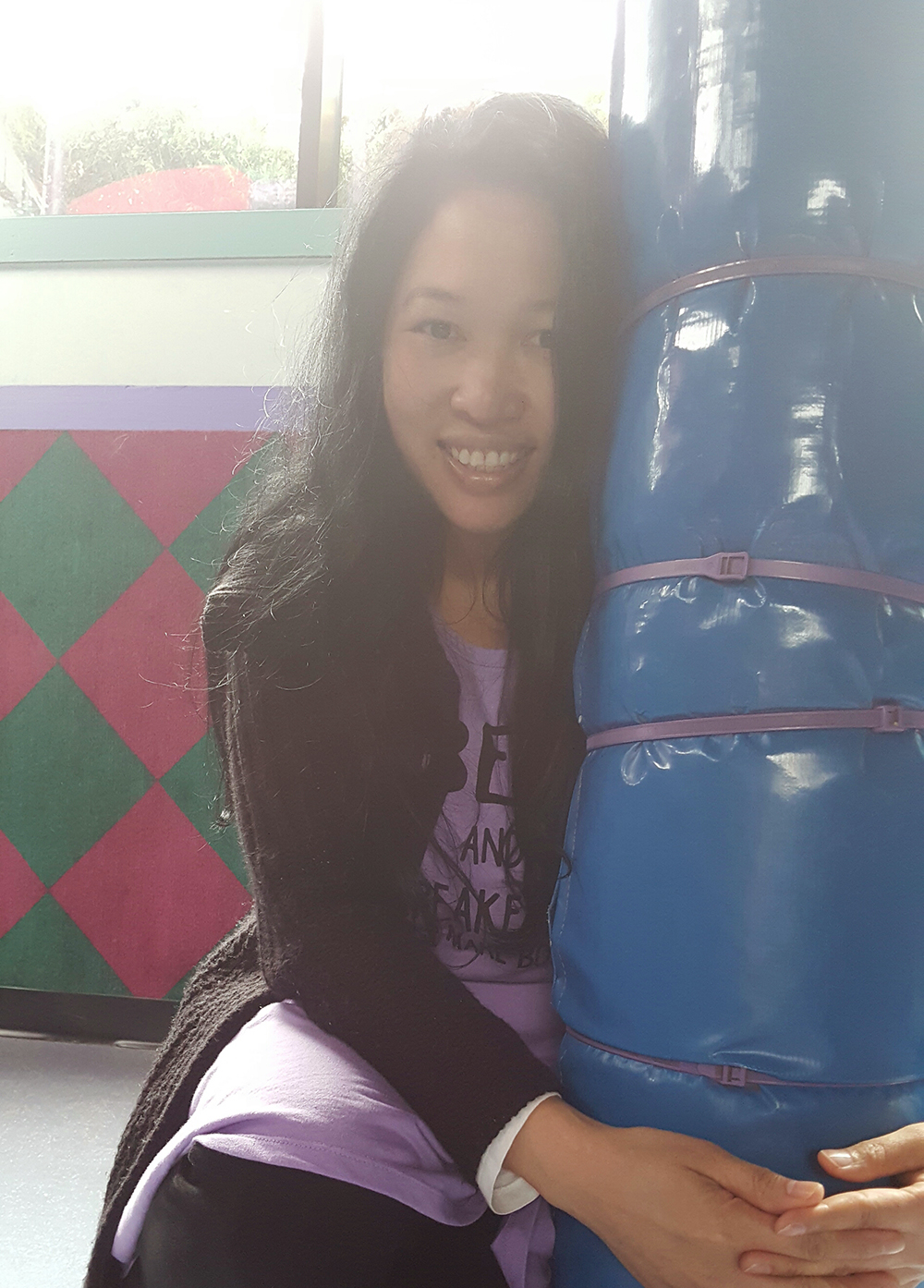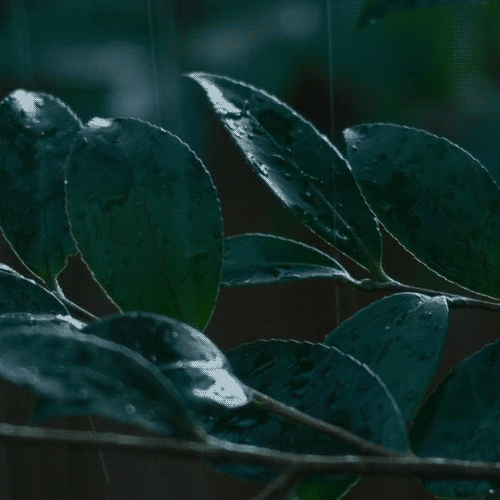-
Comment April 12, 2016
-
Go with the flow of life
Comment April 12, 2016 -
Practice of patience and tolerance
Comment April 11, 2016 -
Patience — strength and clarity of mind
Comment April 11, 2016 -
Ascetic Sumedha and Dipankara Buddha
Comment April 11, 2016Gautama Buddha (also known as Shakyamuni) in a former incarnation known as Sumedha, a rich Brahmin turned hermit kneeling and laying his long black hair on the ground, in an act of piety that the Dīpankara Buddha could cross a puddle of mud without soiling his feet. This story between Dīpankara Buddha and Shakyamuni, occurred many lifetimes before Shakyamuni’s eventual enlightenment. From this act, Dīpankara told Sumedha “In the ages of the future you will come to be a Buddha called ‘Shakyamuni'”, to which Sumedha replied, “I am to become a Buddha, awakened to enlightenment; may you tread with your feet on my hair – on my birth, old age, and death.” Dīpankara Buddha then said, “Freed from human existence, you will become an effective teacher, for the sake of the world. Born among the Shakyas, as the epitome of the Triple World, the Lamp of all Beings, you will be known as Gautama. You will be the son of King Suddhodana and Queen Maya. Shariputta and Moggallana will be your chief disciples. Your caretaker will name as Ananda.”
Source: Sumedha Buddhmission
-
A smile for you….
Comment April 9, 2016 -
Cultivating emotions
Comment April 9, 2016The idea of cultivating emotions in meditation might strike some of us as being a bit odd: after all, don’t emotions “just happen”? It often seems like they well up inside of ourselves unbidden, and come and go like the weather.
A lot of the language we use to talk about emotions suggests a lack of control. For example, we “fall” in love, or we are “overcome” with anger, or we feel “depressed” (who’s doing the depressing), or we feel “overburdened” with stress, or people “make” us annoyed.
From a Buddhist point of view it is not the case that emotions “just happen”. Emotions are habits, and are actively created. It seems like they have a life of their own because we aren’t conscious of exactly how we create them. If we can bring more awareness into our emotional life then we can cultivate the emotions we want to experience (those that make us and others happy), and discourage the arising of those we don’t want (those that make us unhappy and generate conflict with others).
Buddhist meditation encourages us to take responsibility for our emotional states.
We cultivate emotions all the time. An example of how we unconsciously generate emotions is this: imagine you’re with a group of people, and you get to talking about all the things that are wrong with the world — hatred, war, intolerance, child-abuse, pollution etc. As the conversation goes on, and we get more and more involved, what happens? The chances are that we get angry, or depressed, or feel self-righteous. By focusing on things that anger or depress you (without creatively trying to see what you can actually do about these things), you cultivate these emotions.
Imagine if you did that with things that encouraged a sense of love and well-being? That’s what the Metta Bhavana practice is about. It’s a meditation practice in which we consciously set up the conditions for the arising of positive emotion.
Source: http://www.wildmind.org
-
-
The Ten Precepts
1 April 9, 2016
Dasa-sila
These training rules are observed by novice monks and nuns. They are derived from the Eight Precepts by splitting the precept concerning entertainments into two parts and by adding one rule prohibiting the handling of money.
A fully-ordained monk (bhikkhu) observes the 227 rules of the bhikkhu Patimokkha; a fully ordained nun (bhikkhuni) would observe the 311 rules of the bhikkhuni Patimokkha.
The Ten Precepts:
1. Panatipata veramani sikkhapadam samadiyami
I undertake the precept to refrain from destroying living creatures.2. Adinnadana veramani sikkhapadam samadiyami
I undertake the precept to refrain from taking that which is not given.3. Abrahmacariya veramani sikkhapadam samadiyami
I undertake the precept to refrain from sexual activity.4. Musavada veramani sikkhapadam samadiyami
I undertake the precept to refrain from incorrect speech.5. Suramerayamajja pamadatthana veramani sikkhapadam samadiyami
I undertake the precept to refrain from intoxicating drinks and drugs which lead to carelessness.6. Vikalabhojana veramani sikkhapadam samadiyami
I undertake the precept to refrain from eating at the forbidden time (i.e., after noon).7. Nacca-gita-vadita-visuka-dassana veramani sikkhapadam samadiyami
I undertake the precept to refrain from dancing,singing, music, going to see entertainments.8. Mala-gandha-vilepana-dharana-mandana-vibhusanatthana veramani sikkhapadam samadiyami
I undertake the precept to refrain from wearing garlands, using perfumes, and beautifying the body with cosmetics.9. Uccasayana-mahasayana veramani sikkhapadam samadiyami
I undertake the precept to refrain from lying on a high or luxurious sleeping place.10. Jatarupa-rajata-patiggahana veramani sikkhapadam samadiyami
I undertake the precept to refrain from accepting gold and silver (money).Source: Access to Insight
-
The Eight Precepts
Comment April 9, 2016
Attha-sila
These training rules are observed by laypeople during periods of intensive meditation practice and during uposatha (lunar observance) days. The Eight Precepts are based on the Five Precepts, with the third precept extended to prohibit all sexual activity and an additional three precepts that are especially supportive to meditation practice.
The Eight Precepts:
1. Panatipata veramani sikkhapadam samadiyami
I undertake the precept to refrain from destroying living creatures.2. Adinnadana veramani sikkhapadam samadiyami
I undertake the precept to refrain from taking that which is not given.3. Abrahmacariya veramani sikkhapadam samadiyami
I undertake the precept to refrain from sexual activity.4. Musavada veramani sikkhapadam samadiyami
I undertake the precept to refrain from incorrect speech.5. Suramerayamajja pamadatthana veramani sikkhapadam samadiyami
I undertake the precept to refrain from intoxicating drinks and drugs which lead to carelessness.6. Vikalabhojana veramani sikkhapadam samadiyami
I undertake the precept to refrain from eating at the forbidden time (i.e., after noon).7. Nacca-gita-vadita-visukkadassana mala-gandha-vilepana-dharana-mandana-vibhusanathana veramani sikkhapadam samadiyami
I undertake the precept to refrain from dancing, singing, music, going to see entertainments, wearing garlands, using perfumes, and beautifying the body with cosmetics.8. Uccasayana-mahasayana veramani sikkhapadam samadiyami
I undertake the precept to refrain from lying on a high or luxurious sleeping place.Source: Access to Insight
















